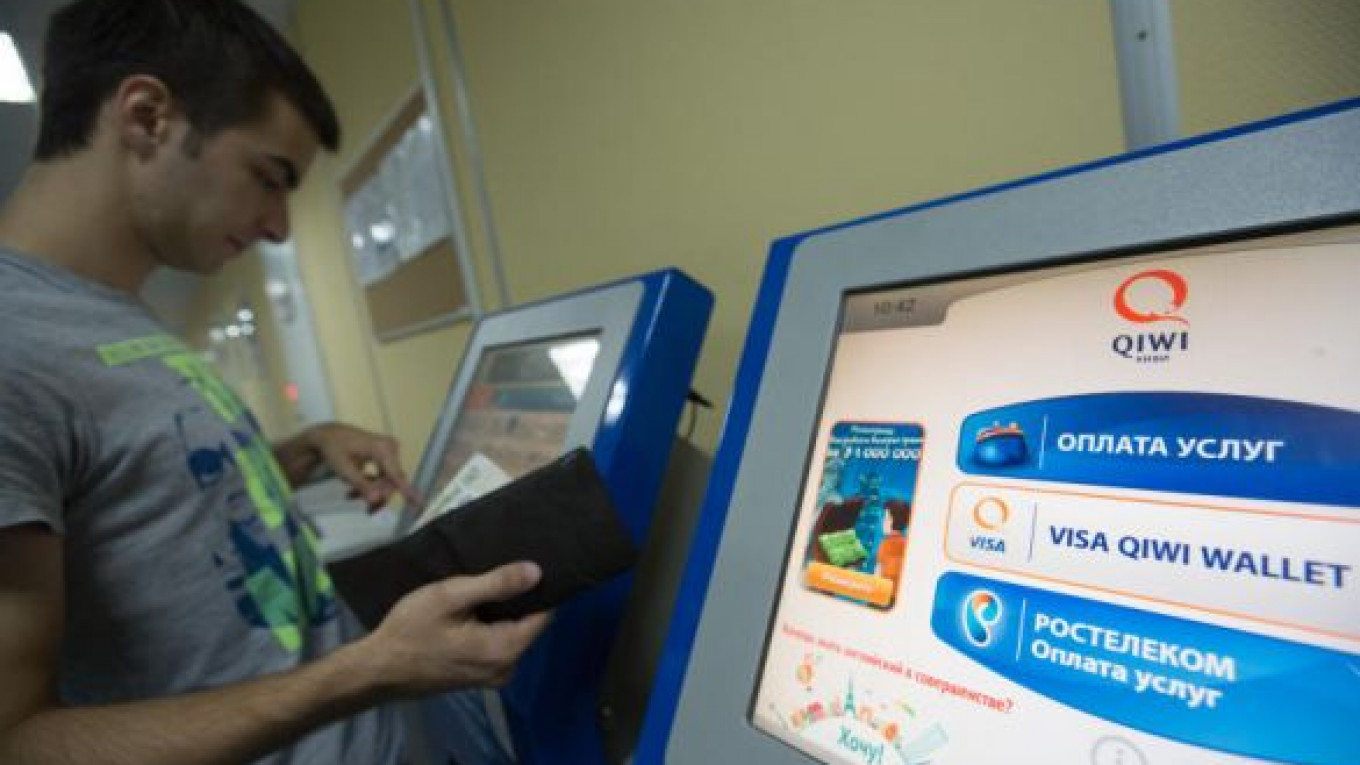Shares in Russia's leading online payment system Qiwi dropped 20 percent at the start of electronic trading on Nasdaq on Wednesday, after Russian lawmakers introduced a bill that would limit electronic financial transactions and increase government surveillance.
After closing at $53.96 on Tuesday night, Qiwi opened at $50.01 and plummeted to $40 within the initial half-hour of trading in New York.
The dive followed the introduction in the State Duma of a package of bills that would restrict anonymous online payments and require Internet service providers to store information about their clients and provide it to law-enforcement agencies.
One part of the legislation would limit anonymous online payments to no more than 1,000 rubles ($30) per day or 15,000 rubles per month for one user. Currently, anonymous payments within Russia are limited to 15,000 rubles at a time or 40,000 rubles per month, news reports said.
Analysts estimated that the new measure may cause the volume of Russia's online payment transactions to shrink by from 50 percent to 80 percent, Forbes reported.
Another bill in the Wednesday package would require online communication service providers to store information about their users' messages for six months, and to share that information with law-enforcement agencies.
The proposed amendments to counter-terrorism laws follow the suicide bombings that killed at least 34 people in Volgograd last month, and come amid Russia's attempts to tighten security ahead of the Sochi Winter Olympics.
A Message from The Moscow Times:
Dear readers,
We are facing unprecedented challenges. Russia's Prosecutor General's Office has designated The Moscow Times as an "undesirable" organization, criminalizing our work and putting our staff at risk of prosecution. This follows our earlier unjust labeling as a "foreign agent."
These actions are direct attempts to silence independent journalism in Russia. The authorities claim our work "discredits the decisions of the Russian leadership." We see things differently: we strive to provide accurate, unbiased reporting on Russia.
We, the journalists of The Moscow Times, refuse to be silenced. But to continue our work, we need your help.
Your support, no matter how small, makes a world of difference. If you can, please support us monthly starting from just $2. It's quick to set up, and every contribution makes a significant impact.
By supporting The Moscow Times, you're defending open, independent journalism in the face of repression. Thank you for standing with us.
Remind me later.






